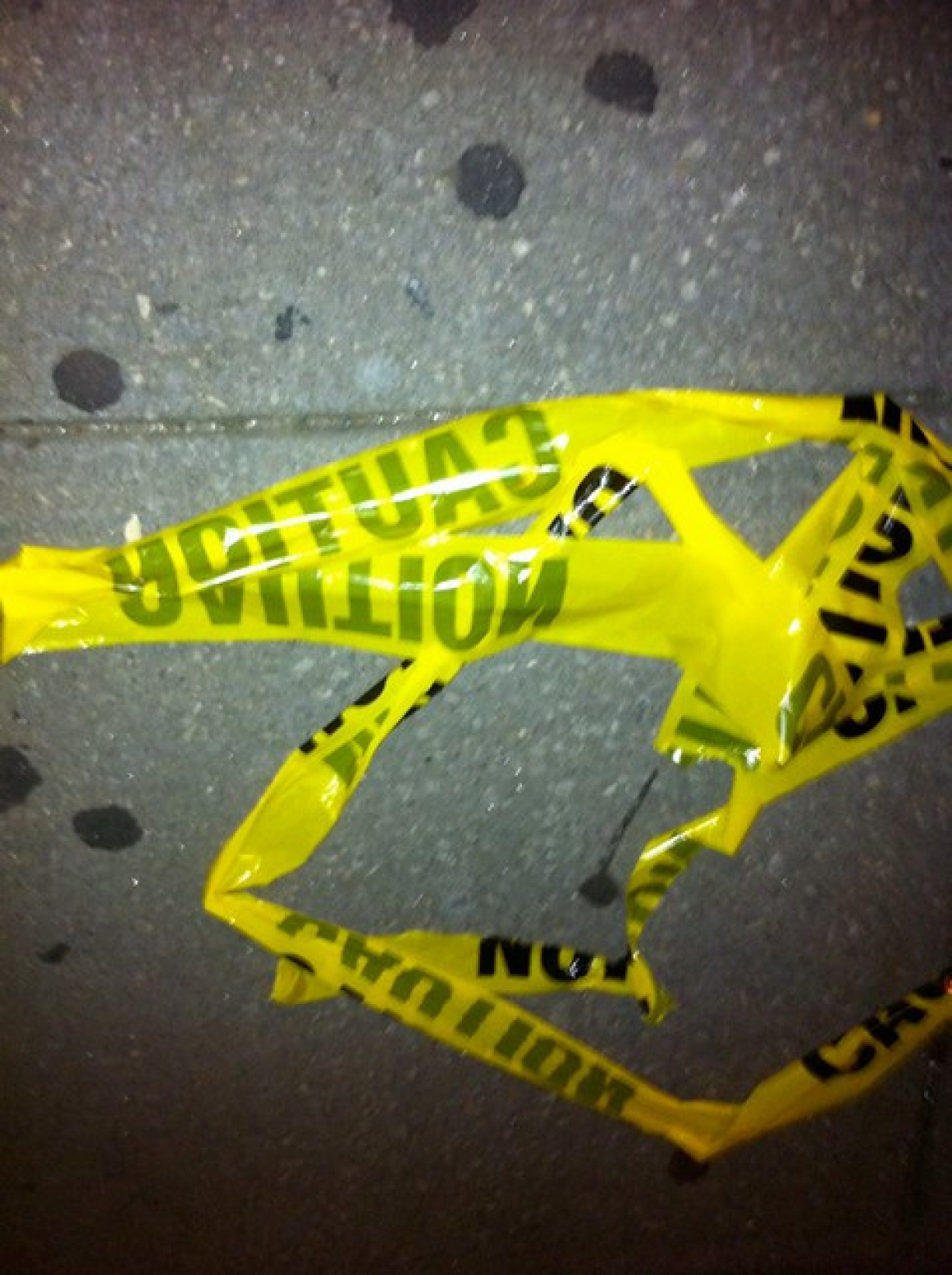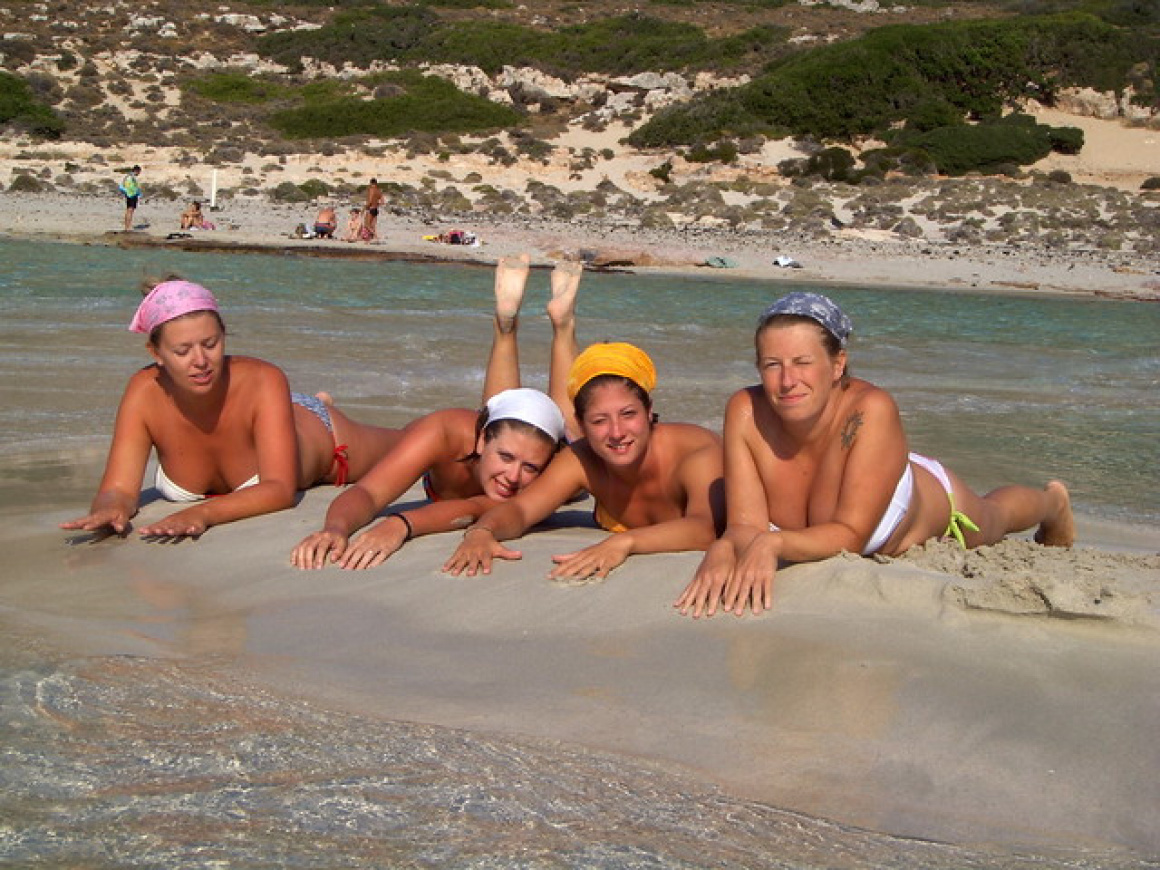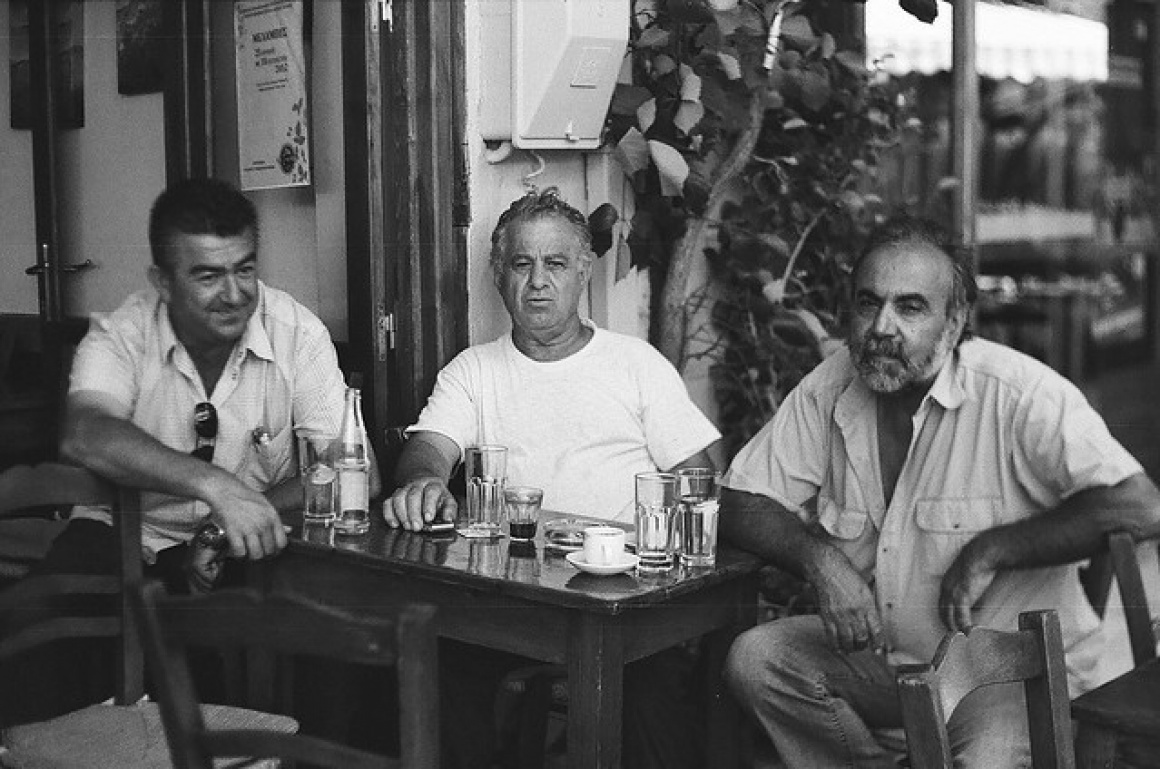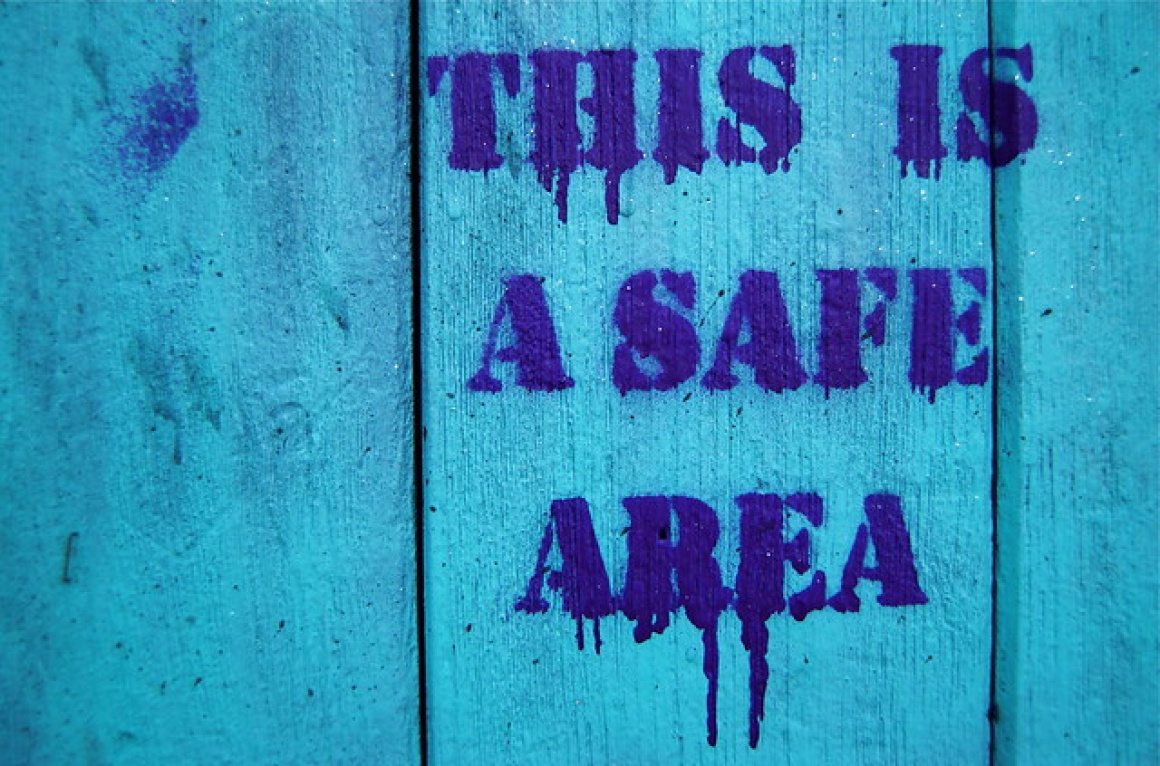Crete isn't just welcoming and beautiful – it's also one of the safest destinations you can choose. As a local, I've always felt secure here, and I'm happy to report that visitors typically feel the same. But I understand safety is a priority when travelling, so let's talk about it. Is Crete safe? In general, yes: crime rates are very low, the community is tight-knit, and everyday life is peaceful. I'll cover different aspects of safety – from crime (or the lack thereof) to practical tips about driving and nature – peppered with my own experiences growing up and living on this island.

 'stocky crime tape photo' - Attribution: bluelemniscate
'stocky crime tape photo' - Attribution: bluelemniscateCrime and Personal Safety
To give you some context, Crete has a very low crime rate. It's not just an impression, statistics back it up. The island scores extremely low on crime indexes. Violent crime, especially against tourists, is extremely rare. In smaller towns and villages, it's practically non-existent. I often tell visitors that the biggest “crime” they might encounter is someone not letting them pay for raki at a taverna because the owner insists it's on the house!
Growing up in a village, we never locked our doors during the day, and even at night it was common to leave the key under the mat. That's the level of trust in many communities. In cities like Heraklion City or Chania, of course people lock homes and cars – it's a city after all – but the threat level is still low. For example, walking around any Cretan town at night, you'll see families with kids, elderly couples on strolls, tourists and locals mixing in outdoor cafes. There's a lively, secure atmosphere even late in the evening.
Petty theft can occur, but it's not rampant. You should take normal precautions like anywhere in the world: keep an eye on your belongings, don't flash large amounts of cash, and use hotel safes for valuables. Pickpocketing is not common here (nothing like, say, Barcelona or Rome), but in crowded areas like busy markets or festival events, just be mindful. I've never been pickpocketed in my life in Crete, but I also don't leave my phone sitting unattended on a café table in a busy square – basic common sense applies. There have been occasional reports of bag snatching from rental cars if left on view in tourist sites, so just tuck things away or take them with you. Compared to many destinations, though, you can relax a bit more about your stuff here.

 'Crete' - Attribution: El Mostrito
'Crete' - Attribution: El MostritoOne thing foreigners sometimes worry about is the concept of vendettas or guns in Crete (we do have a bit of a “wild west” legend, largely blown out of proportion). Yes, historically Cretans had firearms mostly for celebratory shooting at weddings and such, especially in mountain villages, but you're highly unlikely to see any of that as a tourist. Those are isolated cultural remnants and not a threat to visitors at all.
I remember one American friend asking if it was safe to hike alone as a woman. She had read something about Greece and harassment. I assured her and indeed, she went on solo hikes and felt completely comfortable, even welcomed by locals she met. Harassment is not typical, Cretan culture has strong respect for guests. Of course, use the same awareness you would anywhere – if someone is too flirty or pushy (rare, but possible as in any place), a firm “no” works. Cretan women themselves are quite assertive, and our society doesn't tolerate mistreatment of women publicly.
It's notable that in Crete, locals genuinely look out for tourists. In my hometown, if someone saw a stranger looking lost or in trouble, they'd step in to help – perhaps with a bit of theatrical Greek worry, but with good intentions. There's a concept of filoxenia (hospitality and protection of guests) deeply ingrained here.

 '21180008' - Attribution: jana_markinen
'21180008' - Attribution: jana_markinenRoad and Driving Safety
If there's one area where safety could be a concern in Crete, it's road safety. Not to alarm you – millions drive here without incident – but Crete's roads and driving style have some quirks. The island's accident rate has been higher than the national average. What to watch out for: On highways, locals often drive fast and will overtake even on curvy sections. If you're driving and see someone behind wanting to pass, it's customary to ease onto the shoulder to let them by (our main highway often has a paved shoulder used as a 'slow lane'). Always wear seat belts. Avoid driving at night in rural areas if you can, as roads aren't well-lit and there might be unexpected hairpin turns or goats wandering on the road (I've encountered my share of goats and sheep!).
That being said, I don't want to deter you from renting a car – it's one of the best ways to explore Crete. Just drive defensively. I always tell visitors: you don't need to rush like locals do. Use pullouts to let tailgaters pass, pay attention to signs (even if others ignore them), and absolutely don't drink and drive (unfortunately, some locals do after a raki or two, but enforcement is stricter now). With prudent driving, you'll be fine. I've driven tens of thousands of kilometres here and feel safe, just stay alert especially on scenic coastal or mountain roads where the view might distract you!
Public transport and taxis are generally very safe. Taxi drivers might speed a bit, but they're professionals who know the roads well. Agree on a fare or ensure the meter's running to avoid any misunderstandings, but I've rarely heard of taxi scams in Crete like you might in big tourist cities elsewhere.
Nature and Environment
Crete's nature is gorgeous, but respect it to stay safe. Sun and heat can be an issue in summer – sunburn or heatstroke are common culprits that could spoil a trip. Pack that sunscreen, a hat, and drink lots of water (remember, tap water is safe, so refill those bottles!). On long hikes or while exploring Samaria Gorge, carry more water than you think you need, there are springs in the gorge to refill, but on other trails there may not be.
Swimming:
Crete's seas are generally safe and free of dangerous marine life (no shark attacks or anything dramatic). On rare occasions, jellyfish might appear – ask locals if any have been sighted, but 99% of the time you'll just enjoy clear water. Do heed the beach flag system: a red flag means strong waves or currents, so it's best not to swim then. I confess, as a teenager I'd sometimes ignore flags and go bodysurfing, but I knew the beach well, as a visitor, it's better to be cautious. Some beaches drop off quickly or have rip currents – for example, Falassarna can get big surf on windy days. Lifeguards are present on many popular beaches. If you're a competent swimmer, you'll find the sea very friendly, especially on calm summer days. Just keep an eye on kids as you would anywhere – occasionally a bigger wave can knock a little one off their feet.
Hiking and outdoor safety:
If you're hiking gorges or mountains, stick to marked paths, wear good shoes, and inform someone of your plan if you're going off the beaten track. Every year, a few hikers sprain an ankle or get too adventurous and require a rescue – usually because they left the main trail. In Samaria Gorge, for instance, people occasionally try side treks and get stuck. The gorge has rangers and a sweep team that makes sure no one's left behind at closing time. I've done solo hikes where I didn't see another soul for hours but felt completely safe from a people perspective – no fear of crime in the wilderness here. It's nature you respect: loose rocks, steep cliffs, and such.
Wildlife:
There are no big dangerous animals – no wolves or bears on Crete. You might encounter some shy wild goats and small snakes (none with deadly venom – a bite is very rare and treatable). Mosquitoes can be a nighttime nuisance near water, so a repellent helps for comfort, though they're not malarial. I once got stung by a bee while smelling thyme bushes – that's the kind of “danger” you might encounter, ha!
Health and Emergencies:
Crete has good medical facilities. Each major city has a general hospital, and larger tourist areas have medical centers. Pharmacies are abundant, Greek pharmacists are very knowledgeable, often able to suggest remedies for minor issues. In an emergency, the number to call is 112 (the EU-wide emergency number) or 166 for direct ambulance. The ambulance service is public and free, though response times in remote areas can be slower due to distance. If you have a serious condition, stick to the main towns or ensure you know the route to the nearest hospital, just for peace of mind. Many older visitors or those with ongoing conditions have felt at ease here. I once heard from a long-term expat that she felt safer health-wise in Crete than back home because the community support is so strong – when she hurt her leg in the village, neighbours immediately came to assist before any ambulance even arrived.
A Few Extra Tips
Nightlife Safety:
If you're enjoying bars or clubs, Crete's nightlife is lively but not usually rowdy or dangerous. Use typical caution: watch your drink and stay with friends when possible. In party zones like Malia, things can get a bit wild (mostly among the tourists themselves), but there's always a visible police and security presence. Incidents of serious trouble are infrequent.
Local Laws:
Just a note – Greece has strict laws against drugs and certain requirements of modesty in religious places (cover up when entering monasteries). Also, avoid trying to take “souvenirs” from archaeological sites (even a rock) – it's illegal and taken very seriously.
Natural Disasters:
Crete is in a seismic area, and we do get the occasional small earthquake. They are usually minor and cause no damage. Most buildings are built with tremors in mind. If you feel a tremor, don't panic, it will likely pass within seconds. In all my years here, I've only felt a handful that made me go “oh, earthquake,” and we just joke about it afterwards. Tsunamis are extremely unlikely and historically rare in the Mediterranean. Fires can occur in the dry season, but rarely near tourist areas – still, if you see any brush fire, alert someone immediately.
Let me wrap up with a personal note: I feel safe letting my little cousins roam around the village and safe knowing my friends visiting Crete are in a place where locals genuinely care about their well-being. The island thrives on tourism and community, a safe environment is part of the Cretan way of life we pride ourselves on.
Use common sense as you would anywhere, but know that Crete is a friendly, low-crime, and secure destination. As we say here, “No news, good news” – and indeed, you rarely hear any bad news from our sunny island. Enjoy it without worry!
Now that you're assured of your safety, you might be curious about what makes Crete so special in the first place. Continue to What Is Crete Famous For? to discover the highlights and hallmarks of this remarkable island.


